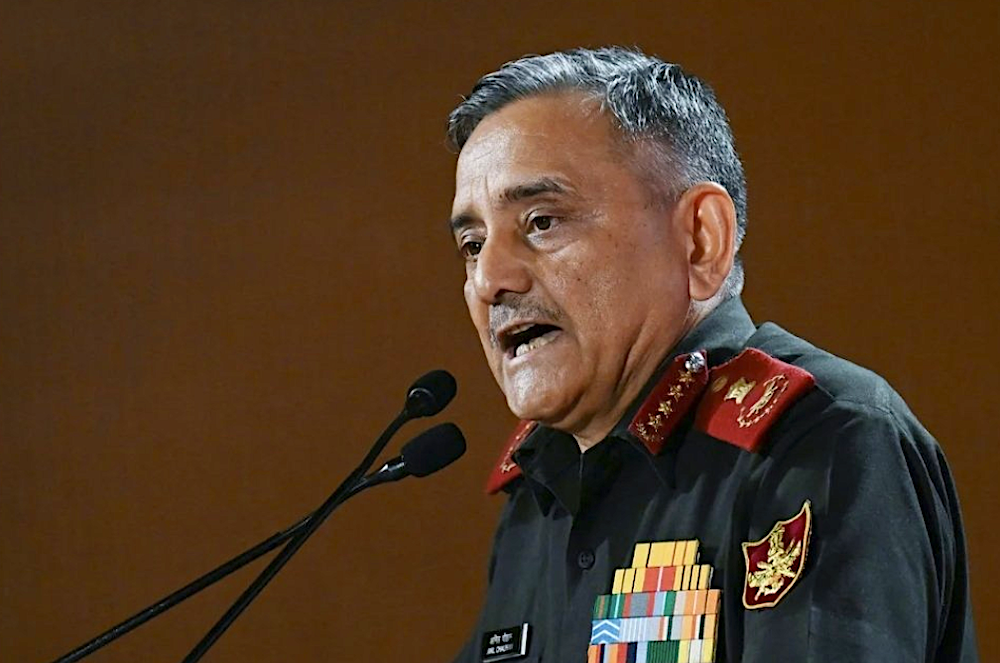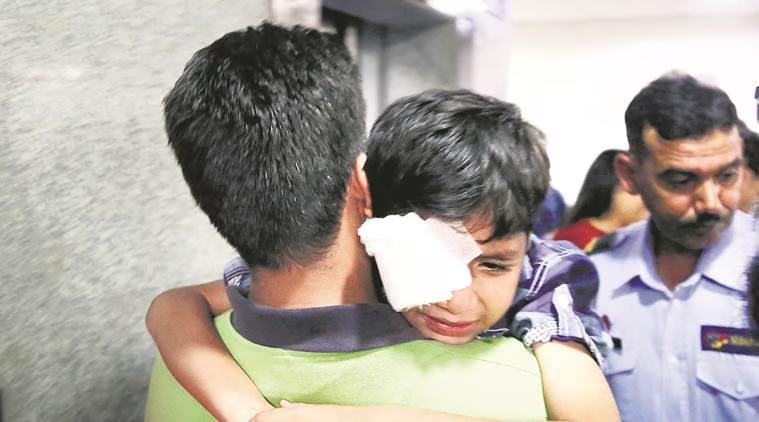Now Reading: India’s Strategy on Pakistan is Deliberate, Not Reactive: CDS Gen Anil Chauhan
-
01
India’s Strategy on Pakistan is Deliberate, Not Reactive: CDS Gen Anil Chauhan
India’s Strategy on Pakistan is Deliberate, Not Reactive: CDS Gen Anil Chauhan

Chief of Defence Staff (CDS) General Anil Chauhan recently emphasized that India’s approach towards Pakistan is rooted in strategy, not immediate reaction. His statement reflects a broader shift in India’s defence posture—one that prioritizes calculated, long-term national interest over short-lived escalations. At a time when regional tensions persist, such a stance aims to assure both domestic and global observers of India’s consistent and responsible military conduct.
A Thought-Out Defence Approach
General Chauhan underlined that India no longer reacts impulsively to provocations from across the border. Instead, the nation follows a framework of deliberate military and diplomatic actions that are part of a long-term vision.
This signals a departure from earlier patterns where immediate responses were often seen following cross-border incidents. Now, decision-making is increasingly based on strategic patience and preparedness.
Clarity on National Security Policy
India’s current policy, as reiterated by the CDS, stresses deterrence over confrontation. Rather than being pulled into provocation cycles, the country is building strong defensive and offensive capabilities to stay ahead in the region.
The armed forces are constantly evolving to match modern warfare needs, including surveillance, cyber readiness, and joint force operations—especially important given the complexities of the India-Pakistan dynamic.
Implications for Border States and Tier 2 Cities
The CDS’s remarks are particularly significant for people living in border states and Tier 2 cities like Amritsar, Jammu, and Jodhpur. These regions have historically been affected by tensions along the Line of Control (LoC) or by security alerts.
A deliberate approach provides a sense of stability to local populations, allowing focus on development, tourism, and trade without the looming fear of sudden military escalations.
Political and Diplomatic Dimensions
General Chauhan’s comments also reflect India’s wider diplomatic posture. By maintaining a stable and non-reactionary stance, India presents itself as a responsible regional power on international forums.
While relations with Pakistan remain strained, India continues to prioritize engagement through global partnerships and economic diplomacy, rather than being drawn into bilateral flashpoints.
Evolving Defence Priorities
The focus is now on building infrastructure, enhancing intelligence, and upgrading defence technologies. India’s preparedness, particularly in border management and air defence systems, is moving away from reaction to anticipation.
This shift benefits not just the armed forces but also the economy of surrounding towns and cities, as investments in military infrastructure often bring local development in Tier 2 regions.
Conclusion
India’s strategic posture under the leadership of CDS Gen Anil Chauhan appears to be deliberate, forward-looking, and rooted in national interest. Rather than reacting to every provocation, the country is charting a course of calm, strength, and preparedness. For citizens, especially those near conflict-prone borders, this approach offers a reassuring sense of stability in an otherwise unpredictable geopolitical environment.

























